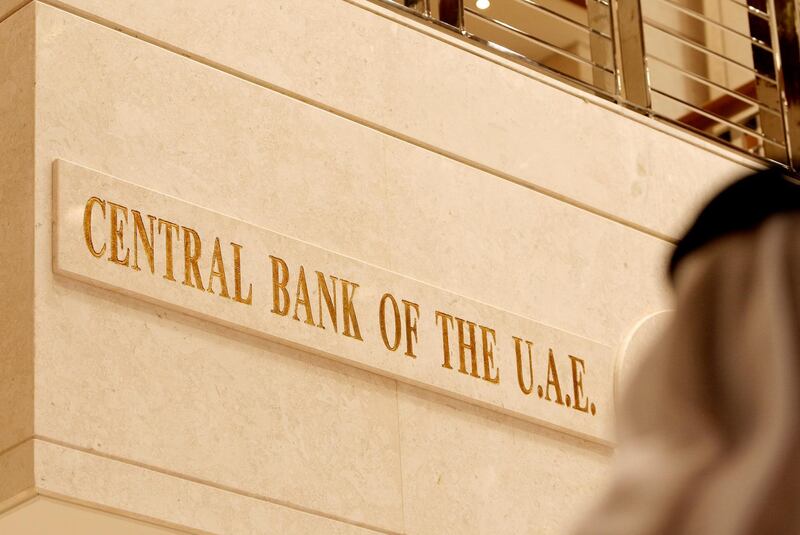Banks and financial institutions have drawn down more than three quarters of the Dh50 billion worth of interest-free loans provided by the Central Bank of the UAE to relieve businesses and individuals struggling due to the Covid-19 pandemic.
Banks in the UAE availed of 77 per cent of the liquidity facility, amounting to Dh38.5bn of the allocated funds in the Targeted Economic Support Scheme (TESS), the banking regulator said in a statement on Saturday.
"The CB UAE has also issued a notice that includes additional clarifications on the deferral requests under the TESS and aims to further facilitate the implementation of the scheme," it said.
The central bank first rolled out details of TESS in March as it unveiled a Dh100bn stimulus package to support companies and individuals affected by measures taken to stop the spread of the pandemic. This included the Dh50bn of zero-cost collateralised loans now being drawn down and a loosening of banks' capital buffers, giving them more firepower to lend. Further loosening of capital and liquidity buffers has since increased the size of this stimulus to Dh256bn.
Banks that have used 100 per cent of the liquidity facility include Abu Dhabi Commercial Bank, First Abu Dhabi Bank, Emirates NBD, Dubai Islamic Bank, Emirates Islamic Bank, Noor Bank, National Bank of Fujairah, Commercial Bank International, Bank of Sharjah and Invest Bank, according to a list published by the Central Bank.
Lenders that have drawn down 50 per cent of the facility or more include Arab Bank for Investment & Foreign Trade, Arab Bank, Mashreq Bank, Sharjah Islamic Bank, National Bank of Ras Al Khaimah, National Bank of Umm Al Qaiwain and United Arab Bank.
The Central Bank also issued a notice clarifying the handling of deferral requests under the scheme, with the aim of facilitating its implementation.
All banks and financial institutions are required to "consider the specific circumstances of impacted borrowers to receive a deferral of repayment within the TESS," the Central Bank said.
The options for granting postponements include deferring only the principal of a loan, deferring both interest and principal repayments or deferring interest and profits only.
"The most in-demand option will be for the deferment of both interest/profits and principal repayment, unless the borrower’s circumstances allows for accepting other options," it said.
The banking regulator said it also welcomed initiatives taken by banks to support and relieve their impacted customers without drawing against the TESS programme available to them.
Banks have announced a series of measures to support customers, including three-month payment holidays on loans, cuts in interest rates and reductions in banking fees.
For businesses, the regulator ordered lenders to remove requirements for small-and-medium enterprises to have a minimum account balance of Dh10,000 before opening accounts and urged them to speed up account opening times to two days, unless potential customers were deemed to be high-risk under anti money-laundering rules.
For individuals, other support measures have included increasing the loan-to-value limit banks can offer on home loans, meaning the size of deposit required reduces to 20 per cent for first-time expatriate buyers and 15 per cent for nationals.
Globally, the pandemic has disrupted daily life, paralysed air travel, wiped out at least $17 trillion (Dh62.4tn) from stock markets worldwide and forced governments to introduce economic stimulus packages worth more than $8tn as countries went into lockdown.
Governments around the world are beginning to ease the restrictions aimed at containing the spread of the deadly virus, walking a fine line between protecting their people from Covid-19 while resuscitating their economies.







